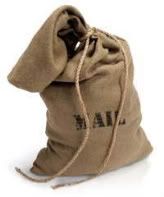
Q: How is it determined when commas are needed or not needed between adjectives in a series? In WriteShop’s Copying and Dictation Exercises, Lesson 5, there’s a phrase I’m confused about. “Bright, fresh lemon flavor” has a comma between the adjectives bright and fresh, but not between the adjectives fresh and lemon. Further on in the paragraph, the words “special fresh flavor” have no commas between adjectives. Can you help?
A: This is a great question, and one that many families would love to understand. I find Jane Straus’s rule easy to apply.
Use the “and” test
According to Jane Straus, author of The Blue Book of Grammar and Punctuation, it’s actually pretty simple:
Use a comma to separate two adjectives when the word and can be inserted between them.
Examples: He is a strong, healthy man.
The man is strong and healthy; hence a comma.
We stayed at an expensive summer resort.
You would not say expensive and summer resort, so
no comma.
Going back to your example, we could say “bright and fresh lemon flavor.” That’s why there’s a comma between the first two adjectives. But we wouldn’t say “fresh and lemon flavor,” so no comma.
Reverse the adjectives
Another test: Can you reverse the adjectives and maintain the meaning?
Examples: He is a healthy, strong man still works, as does
fresh, bright lemon flavor.
Summer expensive resort and bright, lemon, fresh
flavor do not pass the reversal test.
Note: You could correctly say “bright, lemon-fresh flavor,” but that places a different meaning on the sentence altogether!
One last example
The word “special” refers to the “fresh flavor” as a whole. It’s not a “special flavor,” nor is it simply a “fresh flavor.” It’s a “special fresh flavor.” Since it’s not likely one would say “special and fresh flavor,” the “and” rule applies.
Not only that, the phrase “special fresh flavor” means something different from “fresh special flavor.” The reversal rule works well here as well to demonstrate that no comma is needed.
. . . . .


